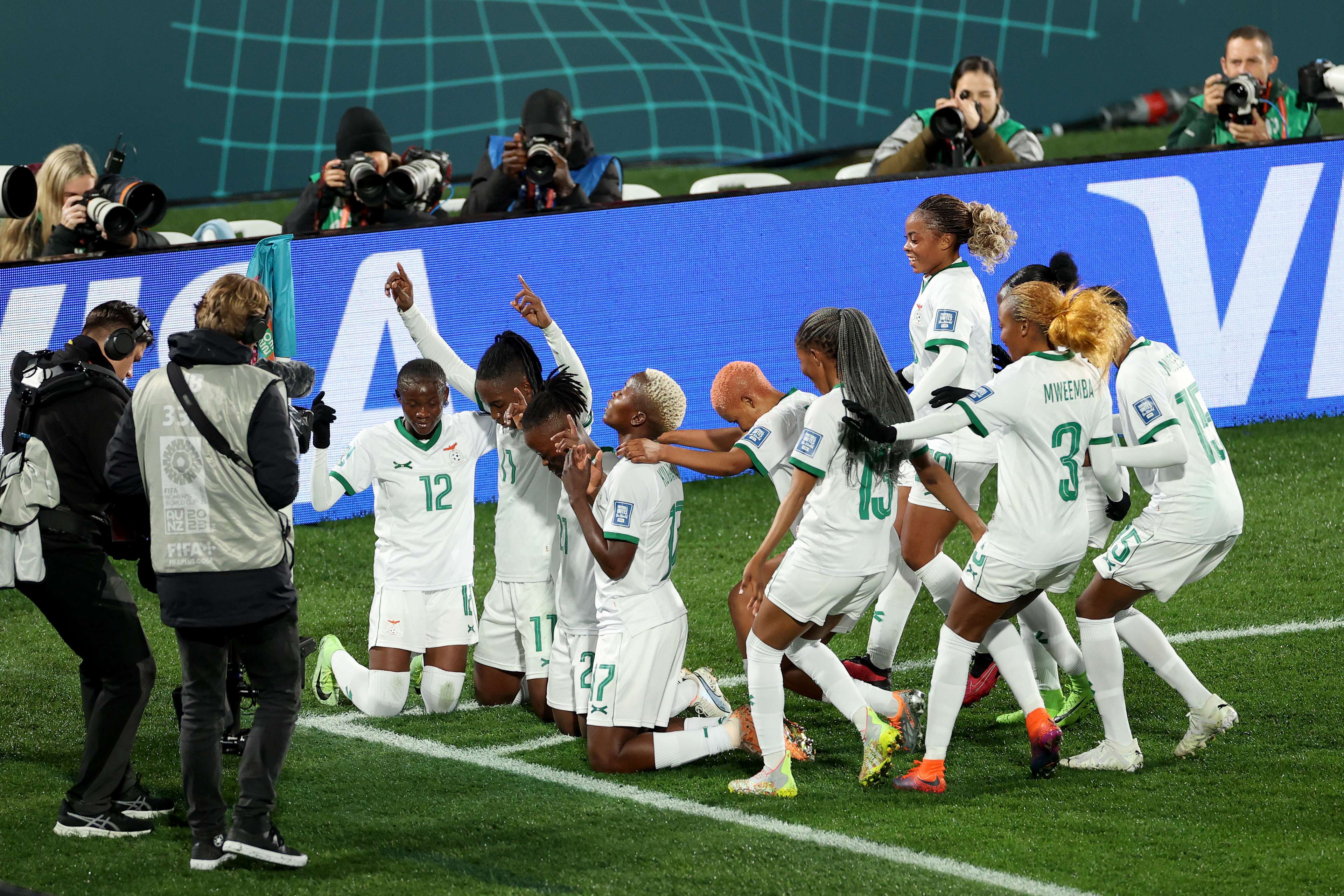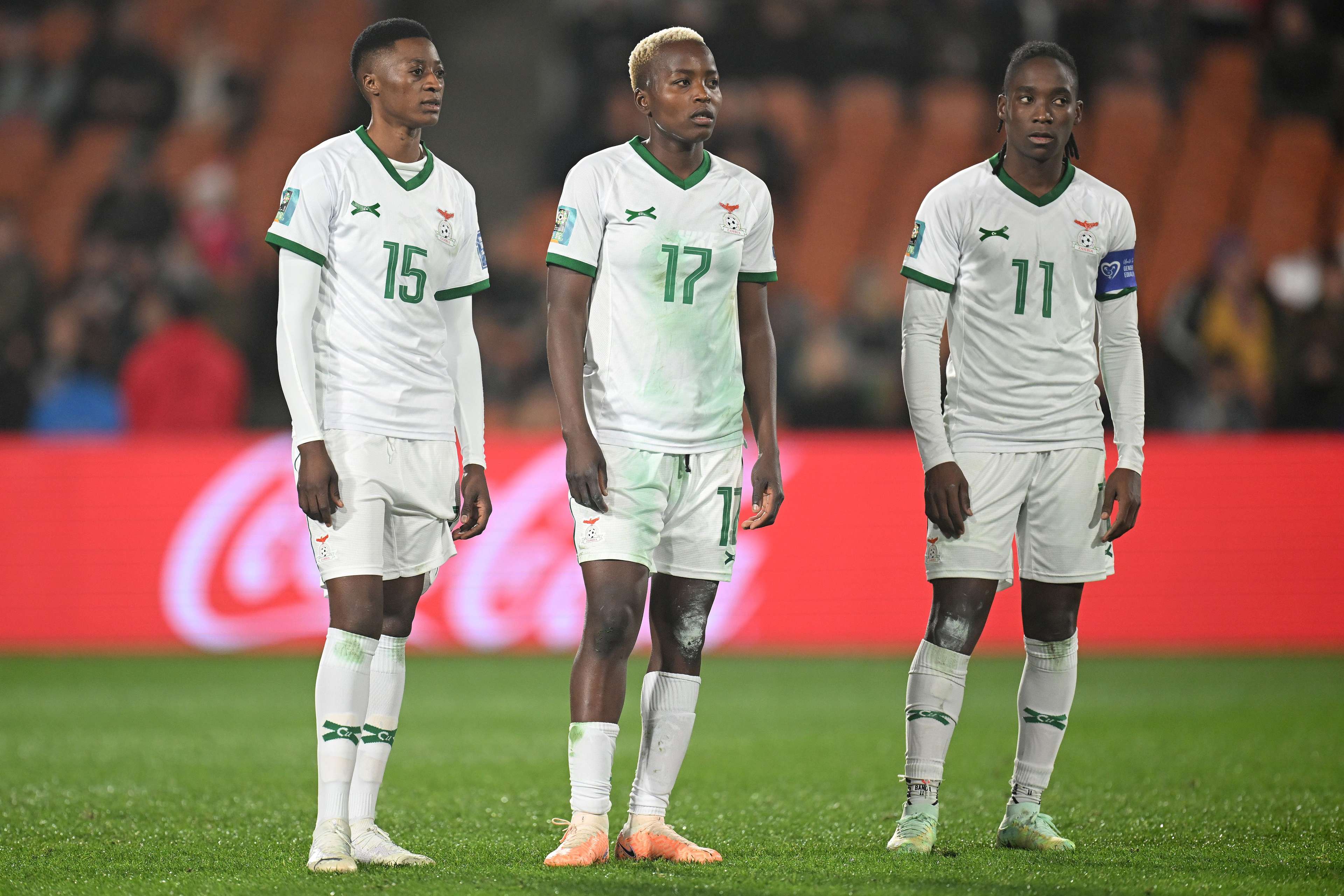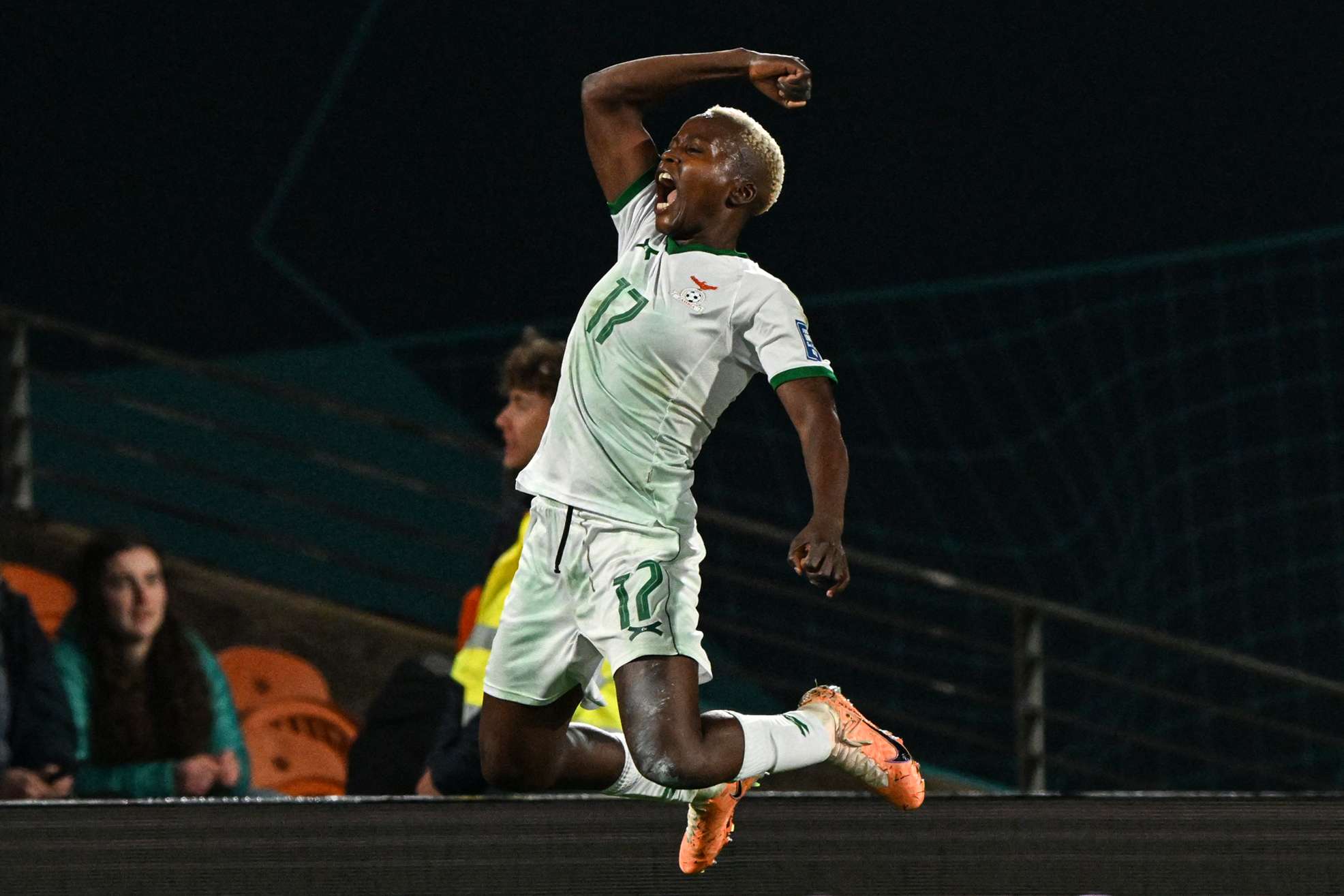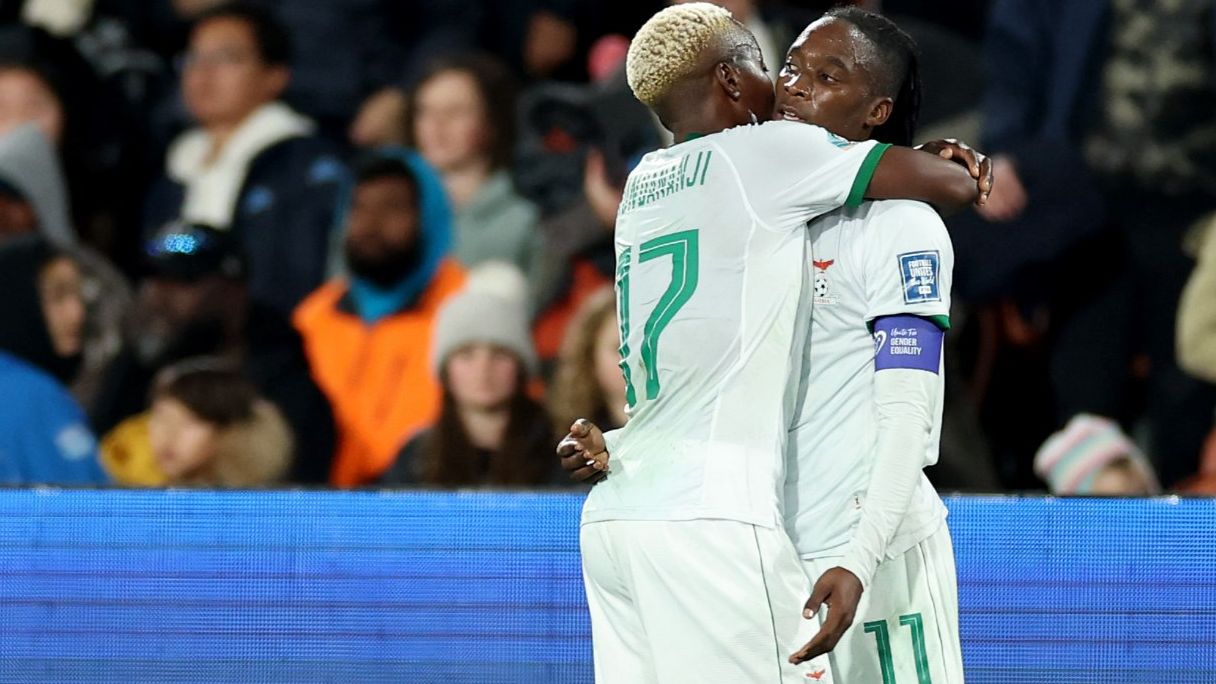On May 4, as Bay FC stepped onto their home pitch to face the Portland Thorns, Zambian striker Racheal Kundananji waved her right hand above her bleached-tipped head, a curious gesture akin to a halo. Bay went on to eventually lose the match, but Kundananji scored a goal.
Two days later and just more than 2,700 miles away, Orlando Pride striker and fellow Zambian Barbra Banda nodded the ball into the back of the net for what became a home match win against Racing Louisville.
Banda’s celebration was relatively nonchalant, as one might expect of a player who’d already made history as a serial Olympic hat-trick scorer - but then she, too, did the same circular, over-the-head wave as Kundananji.
“It means ‘Favor from God,’ " Zambian football journalist Calvin Chikenge said, explaining the hand motion. “All Zambian players do it. It’s like a short prayer when you take the field, a way of saying, ‘I’m protected by Jesus Christ.’”
Since then, Banda and Kundananji have continued the ritual, whether blessing themselves ahead of a clash or celebrating a goal. Even Marta has participated in the tradition, perhaps the most compelling illustration of the technical and cultural impact of Zambian players in the NWSL this season.
 Getty Images
Getty ImagesChikenge, who writes for Zambian football site Bola News (“bola” means football in Bemba, a prominent local language), had been following the NWSL even before Kundananji became the most expensive transfer in the history of women’s football, with Bay FC poaching her from Madrid CFF in February. But that signing, followed by Banda’s to the Pride less than a month later, catapulted interest from casual to dedicated as Zambians across the country and diaspora shifted their focus to the league.
“You just report that Barbra Banda has scored a goal, and the reactions on our website are huge,” he says. “It’s not a surprise that she’s performing well. We’ve seen her play since she was 17; that’s what Banda is all about. When she does it in the NWSL, it’s like, ‘Ah, we were just waiting for this moment.' "
With 13 goals so far, Banda trails only Temwa Chawinga (18) from neighboring Malawi in the Golden Boot race.
The difference in time zones means NWSL games kick off past midnight in Zambia, but Chikenge notes that the accessibility of the league has only encouraged fans to follow along and absorb as much as they can. Being able to watch games internationally and research player stats and club histories was a significant developent, he says. But to see popular Zambian phrases used by teams on social media was the wax seal on the envelope ensuring their commitment.
“When you see Bay FC using popular lingo such as ‘Zambia ku chalo,’ [which translates to “Zambia to the world”], Zambians take pride in that,” he says. “The team can lose all they want, but if you use that phrase, they’ll forget about the score.”
And the excitement has not only come from Zambians in the country, but those abroad, too.
 Getty Images
Getty Images“Some Zambians in the U.S. have come onto our social media platforms asking about the time of a Bay FC game, and I have to calculate the time zones on my watch to know when kickoff is in California,” Chikenge laughs.
When the Pride traveled to San Jose last month for what Bay FC termed the “Ku chalo derby” on Sept. 20, Zambians in the area flocked to PayPal Park cloaked in the green, copper-orange, red, and black of their national flag, ready to celebrate regardless of the result because their country had already won - though it surely helped that the Pride’s 84th-minute goal in the tight 1-0 victory came from yet another Banda head-nod.
A Facebook group called Zambians and Friends in the San Francisco Bay Area hosted a tailgate and a post-match after party at a nightclub in downtown San Jose. When the Pride won the shield, Chikenge heard his neighbors shouting in celebration in Lusaka. Banda and Kundananji have stuck a Zambian pin in the map of women’s football and are slowly shifting the ground back home. And that’s before considering midfielder Grace Chanda, who is signed to the Pride but working her way back from injury, or the Copper Queens’ global performances that continue to exceed the bounds of what the Zambian Association of Football affords them.
 Getty Images
Getty Images“It used to be unusual to see girls playing football in Zambia,” Chikenge said, “but more people want their children now to play football.”
They’ve seen what these opportunities can do. In February, a video went viral in Zambia of Banda gifting her mom a new car, and in July, Kundananji launched an eponymous foundation to champion young girls from underprivileged backgrounds in sport.
“People are beginning to see women’s football as a career. You can encourage your girl to pursue it,” he said.
Now that Banda and the Pride have won the NWSL Shield, Zambians have shifted their attention to the matter of the U17 Women’s World Cup, where Zambia will be making its second appearance.
Its first was in 2014, when Banda played for the team.
.jpg?auto=webp&format=pjpg&width=3840&quality=60)